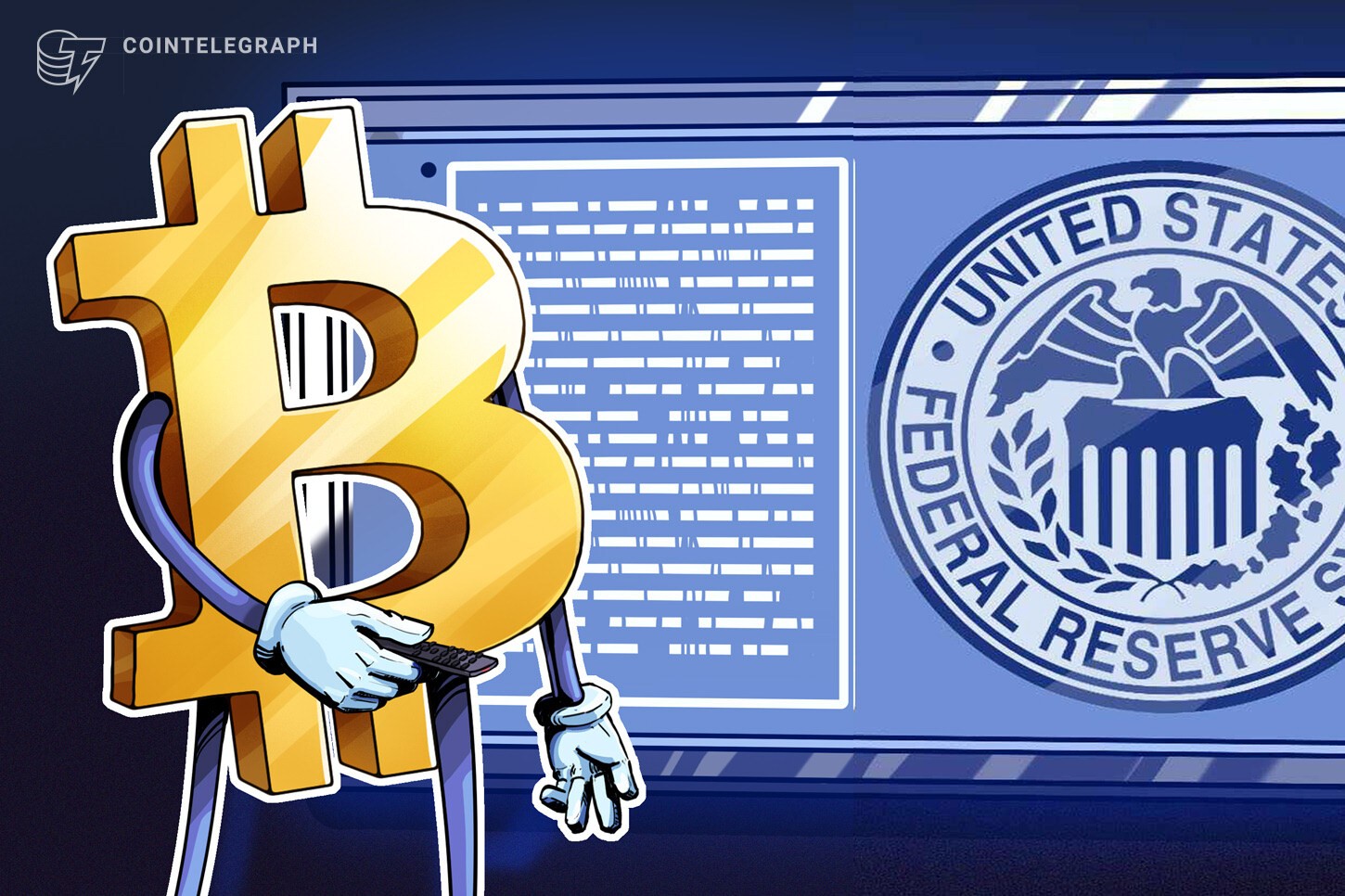Crypto markets are up after the US Federal Reserve cut rates. But in other parts of the world, the picture isn’t so rosy.
Thai bank customers are experiencing massive bank lockouts, and France says it could block companies operating on crypto licenses obtained in other parts of the European Union.
Meanwhile, in Australia, securities regulators have made things easier for stablecoin distributors by scrapping a license requirement.
From US Fed policy spurring crypto markets to Pakistan opening its doors to crypto, there were substantial developments in the industry last week.
Here’s the first weekly edition of Global Express:
US Fed cuts interest rates
On Wednesday, the US Federal Reserve cut interest rates by a quarter of a point. It was the central bank’s first rate cut since December 2024, bringing the short-term rate down from 4.3% to about 4.1%. Bitcoin’s (BTC) price pumped on the news.
In the long term, crypto analysts expect the rate cut to be a boon for markets, as crypto prices strongly correlate with liquidity cycles. When rates were slashed after the COVID-19 crisis in 2020, crypto markets saw a boom by early 2021.
Some noted that there may well be a price correction in the short term. Coin Bureau founder and market analyst Nic Puckrin said, “The main risk is that the move is already priced in ... hope is high and there’s a big chance of a ‘sell the news’ pullback. When that happens, speculative corners, memecoins in particular, are most vulnerable.”
The Fed previously intended to leave its rate unchanged and tackle inflation, which is still higher than the central bank would like. But official reports of dismal job numbers, which saw hiring in the US essentially grind to a halt amid the unpredictable economic policies of President Donald Trump, meant the bank needed to pivot.
Decreased interest rates mean lower borrowing costs for home, car and business loans, which the Fed hopes will boost hiring.
France could revoke EU passports for crypto firms
On Monday, France’s securities regulator, the Autorité des Marchés Financiers (AMF), said it was concerned about unequal enforcement of the Market in Crypto-Assets (MiCA) law.
MiCA is the flagship crypto legislation of the EU, laying out requirements for stablecoin issuers, exchanges and other virtual asset service providers. The law has a travel provision, allowing companies that receive it in one EU member state to do business in all member states.
The AMF is concerned that crypto companies are looking for the most lenient jurisdictions to apply, and then do business all over Europe. Marie-Anne Barbat-Layani, chair of AMF, said crypto companies “are doing their regulatory shopping all over Europe, trying to find a weak link that will give them a licence with fewer requirements than the others.”
Barbat-Layani conceded that the move would represent a serious breach of trust in European markets. “It’s very complex legally and not a very good signal for the single market — it’s a bit like the ‘atomic weapon’ ... but it’s still a possibility we hold in reserve.”
The AMF head’s statements follow a growing trend. France, along with Austria and Italy, is not he third EU member state to call for the European Securities and Markets Authority to take over supervision of crypto companies.
Regulators from the three countries want stricter controls after a review of the Malta Financial Services Authority’s authorization process found it only “partially met expectations.”
Pakistan opens its doors to crypto
Over the weekend, the Pakistan Virtual Asset Regulatory Authority (PVARA) asked major crypto companies to submit Expressions of Interest to enter the country’s digital asset market.
Bilal bin Saqib, PVARA chair and minister of state for crypto and blockchain, said they wanted the world’s leading crypto companies to “partner in building a transparent and inclusive digital financial future for Pakistan.”
PVARA asked companies to submit a slew of information, including profiles, proposed services, security standards, revenue, assets under management, existing licenses and ideas for a business model tailored for Pakistan’s markets.
Related: Pakistan launches crypto regulatory body for digital asset sector
PVARA is a new and independent regulator, created specifically for the digital asset industry as the country tries to attract the sector. According to Chainalysis’ 2025 Global Adoption Index, Pakistan scores third in crypt adoption globally.
Thailand scam crackdown freezes millions of bank accounts
Bitcoiners were oddly jubilant as millions of bank customers in Thailand had their accounts frozen earlier this week.
Part of a broad, nationwide scam crackdown by the Cyber Crime Investigation Bureau also saw accounts of innocent vendors and merchants closed. Some 3 million accounts in total were frozen, while all bank customers were subject to daily transfer limits.
On Monday, Digital Economy and Society Ministry Secretary Wisit Wisitsora-at urged the public “not to panic. The suspension is only temporary and will be lifted once checks confirm no wrongdoing.”
However, some in the crypto space were already proposing an alternative. Bitcoin proponent Daniel Batten said, “Thank you BoT [Bank of Thailand] for the free Bitcoin marketing.”
Jimmy Kostro of the Bitcoin Learning Center in Thailand posted:
While Bitcoin would offer a way around government blocks on payments, using crypto for payments is currently illegal in Thailand. The government has only just opened a crypto payments sandbox for tourists to revive its flagging tourism industry.
Australia eases requirements for stablecoin distributors
On Wednesday, the Australian Securities and Investments Commission (ASIC) added an exemption for stablecoin distributors.
Entities distributing a stablecoin issued by an Australian financial services (AFS) licensee no longer have to carry an AFS license themselves.
The ASIC said the move was part of its efforts to support “responsible innovation in the rapidly evolving digital assets space, while ensuring important consumer protections are in place.”
Currently, the exemption only applies to one company.
Magazine: 7 reasons why Bitcoin mining is a terrible business idea


